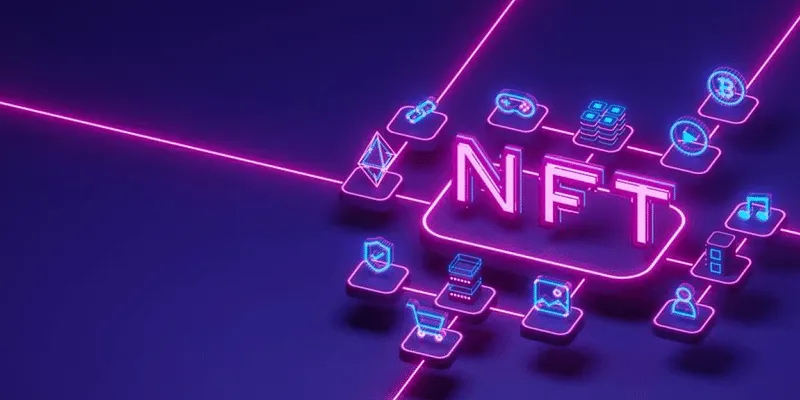Estate Protocol wants you to own land via NFTs, here’s how
Co-founders Parv Prabhakar, Ryan Smith and Cody Coex Foo want to bring ownership of real estate on blockchain through its native token and marketplace.
Owning a home that is yours is a privilege. If you are a salaried individual with not a lot, the options of achieving that milestone can be limited. You can try everything—from saving up meticulously every month to taking on loans, but getting there isn’t easy.
Parv Prabhakar, Ryan Smith, and Cody Coex Foo, the founders of , noticed this too. They found that buying real estate was an expensive, lengthy process which relied on outdated business practices involving numerous middlemen. It wasn’t long before they realised that Web3 could potentially solve this problem.
“We are trying to solve the inefficiencies in the real estate market by making real estate purchasing accessible for the rest of the 90% of the population and democratising the exclusive system which was previously limited to the elite class.” Parv tells The Decrypting Story.
Growing up in a modest home, Parv learned that investing in real estate was essential to build wealth. “I realised real estate investing was much more than a financial safety net, I view it as an asset that can be sold in case of hardship or way to build wealth,” he says.
Pretty soon, he landed on the idea of splitting the cost of purchasing and maintaining property among several people, otherwise referred to as fractional ownership. Parv was only 19 when he thought of the idea as a writer at the Indian crypto exchange .
“With fractionalising, we shift the power to a common man who can buy NFTs and get ownership,” Parv says.
Once the idea was in place, the next logical step was to put together a team. During his time at WazirX, Parv had met his other co-founders Ryan and Cody online. Pretty soon, the three of them found themselves building Estate Protocol together.
Ryan looks after the real estate investment in the firm, while Cody handles the business development. In 2021, the startup raised $50,000 in the pre-seed round. It is in the process to close $1 million in funding by September this year.

How fractionalisation of NFT works in real estate
This is the upside to investing in fractional NFTs. By splitting the costs among several people, the amount of capital required to enter the market is lowered. This makes investing in real estate accessible to even new investors.
“These fractionalised NFTs could be as low as $5 or $10. Investors can buy $5 or $10 worth of Airbnb in the US,” says Parv.
Estate Protocol isn’t the only one putting fractional ownership to use. There are several companies that extend this concept via NFTs, including Ekta Blockchain, a crypto firm that raised $5 million in seed funding for demonstrating how this would play out in the real world. However, Estate Protocol things slightly differently. The company issues a native token, Brix, that represents ownership of a given property. Owning a Brix token also gives you access to share revenue with other owners on properties that are rented out.
For instance, let’s say you claim ownership of a popular Airbnb listed on Estate Protocol and hold a certain amount of Brix, you can get a share of the revenue that property generates every time it is rented out by someone.
Getting onto the platform
If you’re a seller looking to list your property with Estate Protocol, there are a few things that need to be done. First, the company verifies the property with their partners. Once everything checks out, the property is held by the firm in a special purpose acquisition vehicle (SPV). Estate Protocol then mints an NFT address linked to the owner of this entity, after which they can receive a royalty every time it is sold.
“So in effect, the minting of the NFT, or the turning of title from paper to digital is free, but every subsequent sale of that NFT would give us a royalty,” says Parv.
But if you’re looking to get started on investing, things will look a little different. Users visit the website and get their KYC done via a service called Blockpass.
“Blockpass will verify the investor’s documents, once the KYC is completed. Investors can visit our marketplace and check out a bunch of properties in different areas. It could be any type of property, it could be Airbnb in a tourist town of the US, or a data centre, or a warehouse run by Amazon,” he says.
For now, Estate Protocol is piloting this NFT marketplace and is aiming to go live in the next three months. Besides its own marketplace, the NFTs minted by the firm can also be listed on third-party marketplaces like or those compliant with Ethereum and Polygon.
Defining ownership
In the US real estate market, those who buy real estate get warranty deeds — a physical document signed by both the buyer and seller. This grants title ownership to the buyer.
This is how ownership is established via Estate Protocol: It ties up with local title partner companies in every US jurisdiction. These title partner companies then check the tokenised real estate and verify the validity of the title. “Sellers can tokenize their title into an NFT and then list the NFT on our marketplace,” says Parv.
According to him, since the parameters vary across different jurisdictions in the US, a title search can be conducted through deeds, land records, court judgements that confirms the validity of the title.
Treading legal boundaries
Since Estate Protocol is registered in Delaware, it is required to comply with the securities law in the US. “So our restriction on the supply side is that the properties that we tokenize should be listed in the US. Hence we can't have properties listed in India,” says Parv, adding that Indian users can still invest in properties listed by them.
For Estate Protocol, the journey isn’t limited to just the US. It is looking to set up an index of property tokens for popular neighborhoods.
“For instance, lot of wealthy buy houses in Chelsea, London and so we plan to tokenise a range of properties in that neighbourhood, and let common people invest in the whole neighbourhood at once,” he adds.
Edited by Akanksha Sarma











